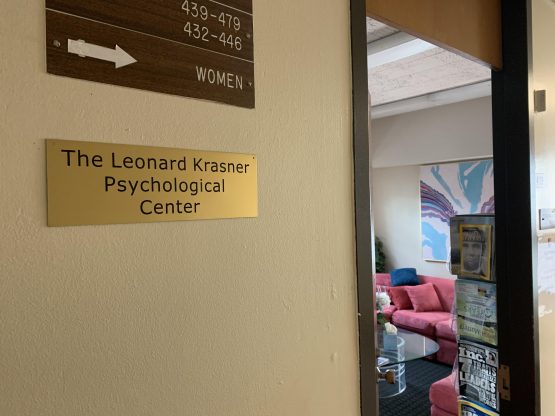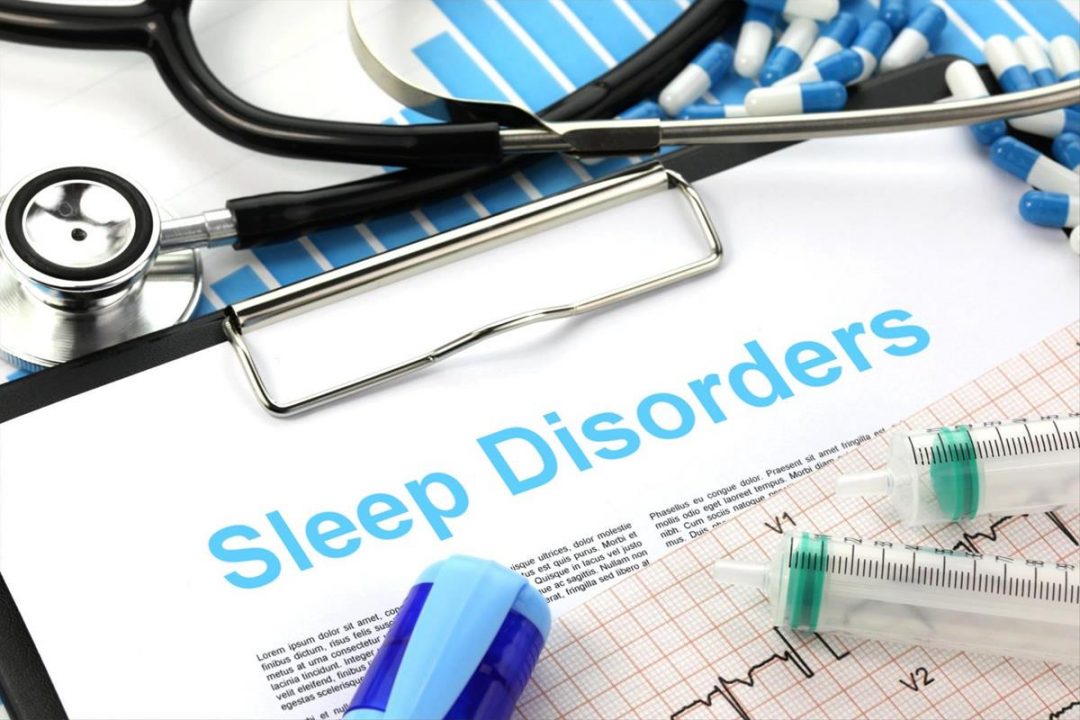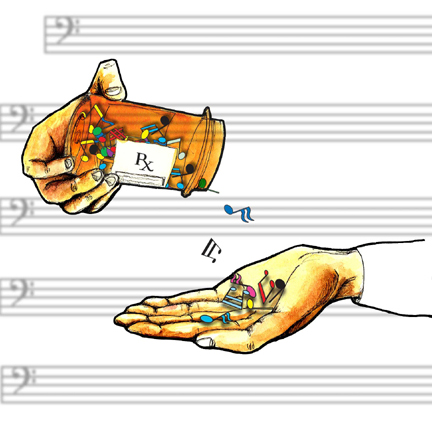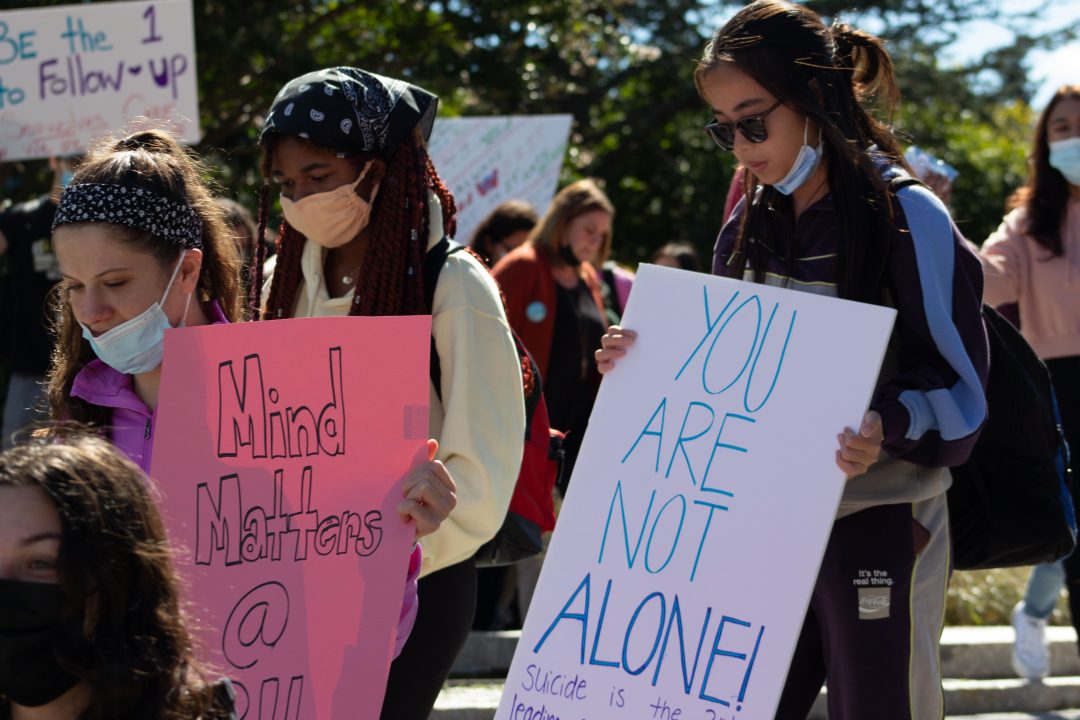
Located on the fourth floor of Stony Brook University’s Psychology B Building, the Leonard Krasner Psychological Center and its team of clinical psychologists work to treat an ongoing issue found among the Stony Brook community — mental illness.
The Leonard Krasner Psychological Center (KPC) provides professional mental health care for students and residents of the local Stony Brook community. Opened in 1972, the KPC is an outpatient, nonprofit facility that provides psychological services and trains clinical psychologists from qualified schools and programs. The KPC also conducts clinical research in chronic depression, anxiety, mood disorders, cognitive neuroscience and domestic violence within families and close intimate relationships.
“The reason for this center [KPC] is really, truly, is to provide advanced graduate students with opportunities to become experienced in providing specialized treatment and assessment services to our campus people, as well as off-campus people,” Dina Vivian, the director of the KPC and a Ph.D. clinical professor in Stony Brook’s Department of Psychology said.
Starting as a clinical psychology training clinic, the KPC is named after renowned psychologist Leonard Krasner. Born in 1924 in New York City, Leonard Krasner received his Ph.D. in psychology from Columbia University and was a professor of psychiatric and behavioral sciences at Stanford University. Later in his career, he was an emeritus professor at Stony Brook University.
Krasner is known as a pinnacle figure in the development of behavior modification and started the first U.S program focused on clinical psychology training at Stony Brook University. He has published countless articles and participated in the writings of numerous textbooks on clinical psychology from behavioral perspectives throughout his long career. Krasner passed away in 2007 at the age of 82, and soon after the psychological center was renamed in his honor.
The staff at the KPC includes a team of professionals and master, post and pre-doctorate and doctoral students who diagnose and treat mental illnesses. Many of the facility’s resources include psychological evaluations and testing for disorders, free LGBTQ+ support groups and therapy in both group and private settings.
Treatments are offered at the KPC for anxiety, depression, relationship and adolescence issues and other pressing matters that can affect mental or psychological health. Specific therapeutics for these concerns can include therapy issued in small groups, a 10-week ADHD group program and social anxiety testing to learn how to cope with related issues.
Vivian has over 30 years of clinical research experience. Vivian is an expert in mental health evaluations and treatments and partakes in training post-doctoral fellows, doctoral interns and advanced graduate student trainees.
Although the KPC isn’t widely known on campus, the facility aims to help people who are struggling with their mental health. As a long-established care provider to residents of Stony Brook, Vivian feels that the KPC’s impact is larger than many think.
“CAPS [Counseling and Psychological Services] sends us students all the time for specialized services that they do not provide,” Vivian said. “All of which those reports are necessary for the office of Student Support Services for students to be granted accommodations to testing environments, the courses and et cetera.”
The KPC also extends its work to other mental health services on campus. Many students that are seen at the KPC are referred there by professionals at CAPS. The center also has a joint consortium externship program for students in doctoral psychology with the Mind-Body Clinical Research Center.
For many students on campus, mental health is an important aspect of navigating college life. The KPC aims to lessen the burden that students’ mental health can become throughout the school year.
“The levels of psychological challenges in the college population are pretty high, especially in regards to issues such as anxiety problems and depression,” Vivian said. “There’s a great opportunity for people to get screened to get a sense of what is going on with them and to plan some photo testing or treatment. It’s very important.”
Anjali Chauhan, a senior double major in biology and psychology who works as a healing arts therapist at CPO, talks about the importance of mental health awareness for students, including the many resources that Stony Brook has on campus for their students.
“You are not alone,” Chauhan said. “I know that’s like a super cliche but at the same time I think for me that’s important. I know that a lot of people around me like, it’s not something that’s talked about a lot … I just want everyone to know it’s okay to feel overwhelmed or less than everyone else says so. It’s right to take that time for yourself.”
The KPC offers a wide variety of resources on campus for students and residents of the Stony Brook community to use when their mental health isn’t at its highest.
“It’s okay to really reach out and talk, and this is not something to be ashamed of,” Vivian said. “Mental challenges are very much the same as physical challenges. We need to deal [with them] … If we feel depressed or anxious or anything we have to say I need help, and help is there.”
















